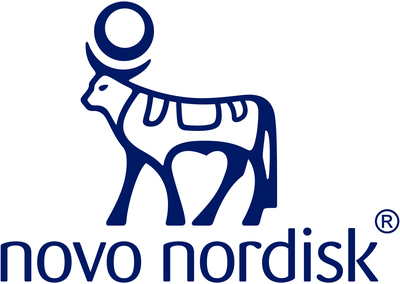CagriSema 2.4 mg / 2.4 mg demonstrated 22.7% mean weight reduction in adults with overweight or obesity in REDEFINE 1, published in NEJM
- Data presented simultaneously at the American Diabetes Association's® 85th Scientific Sessions, showed mean weight reduction in the highest range of efficacy observed with existing weight loss interventions1
- When adhering to treatment, weight loss of ≥5%, ≥20%, ≥25%, and ≥30% was observed in 97.6%, 60.2%, 40.4% and 23.1% of patients respectively at 68 weeks1*
- The REDEFINE clinical program is ongoing to further investigate efficacy and safety of CagriSema, including recently initiated REDEFINE 112
PLAINSBORO, N.J., June 22, 2025 /PRNewswire/ -- Today, TheNew England Journal of Medicine (NEJM) published results from Novo Nordisk's phase 3 REDEFINE 1 trial evaluating the efficacy and safety of investigational CagriSema plus lifestyle interventions for weight loss in adults with obesity or overweight who have a weight-related medical complication and without diabetes.1 REDEFINE 1 met its co-primary endpoints and achieved statistically significant and clinically meaningful weight loss at 68 weeks in patients taking CagriSema versus placebo.1 These data, along with the related phase 3 REDEFINE 2 study conducted in adults with overweight or obesity and type 2 diabetes, were presented today during a scientific symposium at the American Diabetes Association's® (ADA) 85th Scientific Sessions and published in NEJM.
"In REDEFINE 1, participants saw significant and clinically meaningful weight loss under a protocol that allowed investigators to maintain patients on a submaximal dose if deemed best for the patient. We also witnessed low, single-digit discontinuation rates due to adverse events in both REDEFINE 1 and 2," said Martin Holst Lange, executive vice president and head of Development at Novo Nordisk. "These results reinforce our confidence in CagriSema and we continue to study the potential of this combination through the REDEFINE trials."
CagriSema is an investigational product that combines the GLP-1 RA, semaglutide, with an amylin analogue, cagrilintide. The REDEFINE 1 trial found that treatment with CagriSema resulted in greater weight loss of 22.7% at 68 weeks versus 2.3% in the placebo group (estimated difference [95% CI] -20.4 [-21.1 to -19.7]; p<0.001) if all patients adhered to treatment.1* When evaluating the treatment effect regardless of adherence, those treated with CagriSema achieved statistically significant weight loss of 20.4% at 68 weeks versus 3.0% for the placebo group (estimated difference [95% CI] -17.3 [-18.1 to -16.6]; p<0.001).1** In addition, a supportive secondary analysis showed that half (50.7%) of trial participants with obesity treated with CagriSema reached the threshold for non-obesity (BMI <30 kg/m2) at the end of treatment, from a mean BMI of 38 kg/m2 at the start of treatment. In the placebo group, 10.2% reached that threshold at 68 weeks.1
Select confirmatory secondary endpoints showed that if all participants adhered to treatment 40.4% of those receiving CagriSema achieved a body-weight reduction of ≥25% ([95% CI] 39.5 (37.1 to 41.9); p<0.001).* Additionally, 23.1% lost ≥30% of their body weight ([95% CI] 22.7 (20.7 to 24.7); p<0.001).1* When applying the treatment policy estimand, 34.7% of participants treated with CagriSema achieved ≥25% body-weight reduction ([95% CI] 33.7 (31.5 to 35.9); p<0.001) and 19.3% achieved ≥30% body-weight reduction ([95% CI] 18.9 (17.1 to 20.7); p<0.001).1** In a prespecified analysis of 252 participants, the relative reduction in fat and lean soft-tissue mass from baseline to week 68 was -35.7% (fat mass) and -14.4% (lean soft-tissue mass) for those treated with CagriSema versus -5.7% and -4.3% for the placebo group, respectively.
"In REDEFINE 1, CagriSema provided weight loss in the highest range of efficacy observed with existing weight loss interventions," said lead investigator Timothy Garvey, MD, professor of medicine and director of the Diabetes Research Center at the University of Alabama at Birmingham. "Investigators were allowed some flexibility in dose adjustments to balance efficacy and safety, but regardless of dose adjustments participants lost significant weight. These findings are relatable to clinical practice, where dosing is often adjusted based on individual needs and clinical judgement."
Safety data generated in the REDEFINE 1 and 2 trials was comparable with the GLP-1 RA class. Overall, discontinuation rates due to adverse events were low, with 6% for CagriSema versus 3.7% for placebo in REDEFINE 1 and 8.4% with CagriSema versus 3% with placebo in REDEFINE 2.1,3 In REDEFINE 1, adverse events were mainly gastrointestinal (79.6% in the CagriSema group vs 39.9% with placebo) including nausea (55% vs 12.6%), constipation (30.7% vs 11.6%), vomiting (26.1% vs 4.1%) and were mostly transient and mild-to-moderate in severity.1
Results from REDEFINE 2, a phase 3 study that evaluated the efficacy and safety of CagriSema plus lifestyle interventions in adults with obesity and type 2 diabetes (T2D), were also simultaneously presented during a scientific symposium at the ADA's Scientific Sessions and published in NEJM.3 In REDEFINE 2, if all participants adhered to treatment, the estimated mean change in body weight from baseline to week 68 was -15.7% with CagriSema versus -3.1% with placebo (estimated difference [95% CI] -12.6% [-13.4 to -11.7]; p<0.001).3* When applying the treatment policy estimand, the estimated mean change in body weight from baseline to week 68 was -13.7% with CagriSema versus -3.4% with placebo (estimated difference [95% CI] -10.4% [-11.2 to -9.5]; p<0.001).3** A greater proportion of participants receiving CagriSema, compared with placebo, reduced their body weight by >5% (83.6% vs 30.8% of participants; p<0.001), ≥10% (65.6% vs 10.3%), ≥15% (43.9% vs 2.4%), and ≥20% (22.9% vs 0.5%; p<0.001).3 The safety results from CagriSema in REDEFINE 2 were similar to those reported in REDEFINE 1.3
The REDEFINE clinical program will continue to assess the efficacy and safety of CagriSema. Most recently, Novo Nordisk initiated the REDEFINE 11 trial with the first patient visit occurring in early June 2025. REDEFINE 11 will explore further weight loss potential and safety of CagriSema 2.4 mg / 2.4 mg through a longer trial duration and other protocol changes compared to REDEFINE 1 and 2.
* Based on the trial product estimand: this estimand estimates what the effect would be if all participants adhered to treatment
** Based on the treatment policy estimand: treatment effect regardless of treatment adherence
About CagriSema
CagriSema is being investigated by Novo Nordisk as a once-weekly subcutaneous injectable treatment for adults with overweight or obesity (REDEFINE program) and as a treatment for adults with type 2 diabetes (REIMAGINE program). CagriSema is a fixed-dose combination of a long-acting amylin analogue, cagrilintide 2.4 mg and semaglutide 2.4 mg.
CagriSema is not approved in the US for weight loss.
About the REDEFINE clinical trial program
REDEFINE is a phase 3 clinical development program with once-weekly subcutaneous CagriSema in obesity. REDEFINE 1 and REDEFINE 2 have enrolled approximately 4,600 adults with overweight or obesity. REDEFINE 1 was a 68-week, double-blind, placebo- and active-controlled efficacy and safety phase 3 trial of once-weekly CagriSema, cagrilintide 2.4 mg and semaglutide 2.4 mg versus placebo in 3,417 adults with obesity or overweight with one or more comorbidities and without type 2 diabetes. REDEFINE 2 was a double-blind, randomized, placebo-controlled 68-week efficacy and safety phase 3 trial of once-weekly CagriSema versus placebo in 1,206 adults with type 2 diabetes and either obesity or overweight.
Multiple REDEFINE clinical trials are currently underway including: REDEFINE 3, an event-driven cardiovascular outcomes phase 3 trial; REDEFINE 4 an 84-week head-to-head efficacy and safety phase 3 trial of once-weekly CagriSema versus once-weekly tirzepatide; and REDEFINE 11, a phase 3 trial with longer duration and other protocol changes compared to REDEFINE 1 and 2.
About obesity
Obesity is a serious chronic, progressive, and complex disease that requires long-term management.4-6 One key misunderstanding is that this is a disease of just lack of willpower, when in fact there is underlying biology that may impede people with obesity from losing weight and keeping it off.4,6 Obesity is influenced by a variety of factors, including genetics, social determinants of health, and the environment.7,8
The prevalence of overweight and obesity is a public health issue that has severe cost implications to healthcare systems.9,10 In the US, about 40% of adults live with obesity.11
About Novo Nordisk
Novo Nordisk is a leading global healthcare company that's been making innovative medicines to help people with diabetes lead longer, healthier lives for more than 100 years. This heritage has given us experience and capabilities that also enable us to drive change to help people defeat other serious chronic diseases such as obesity, rare blood, and endocrine disorders. We remain steadfast in our conviction that the formula for lasting success is to stay focused, think long-term, and do business in a financially, socially, and environmentally responsible way. With a US presence spanning 40 years, Novo Nordisk US is headquartered in New Jersey and employs over 10,000 people throughout the country across 12 manufacturing, R&D and corporate locations in eight states plus Washington DC. For more information, visit novonordisk-us.com, Facebook, Instagram, and X.
Novo Nordisk is committed to the responsible use of our semaglutide-containing medicines which represent distinct products with different indications, dosages, prescribing information, titration schedules, and delivery forms. These products are not interchangeable and should not be used outside of their approved indications. Learn more at semaglutide.com.
Contacts for further information
Media: | |
Liz Skrbkova (US) | Ambre James-Brown (Global) |
Investors: | |
Frederik Taylor Pitter (US) | Jacob Martin Wiborg Rode (Global) |
Sina Meyer (Global) | Ida Schaap Melvold (Global) |
Max Ung (Global) |
References:
![]() View original content to download multimedia:https://www.prnewswire.com/news-releases/cagrisema-2-4-mg--2-4-mg-demonstrated-22-7-mean-weight-reduction-in-adults-with-overweight-or-obesity-in-redefine-1--published-in-nejm-302487770.html
View original content to download multimedia:https://www.prnewswire.com/news-releases/cagrisema-2-4-mg--2-4-mg-demonstrated-22-7-mean-weight-reduction-in-adults-with-overweight-or-obesity-in-redefine-1--published-in-nejm-302487770.html
SOURCE NOVO NORDISK INC.


